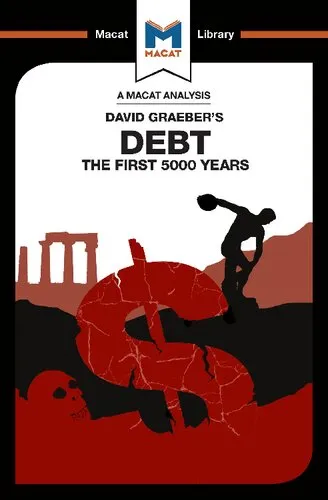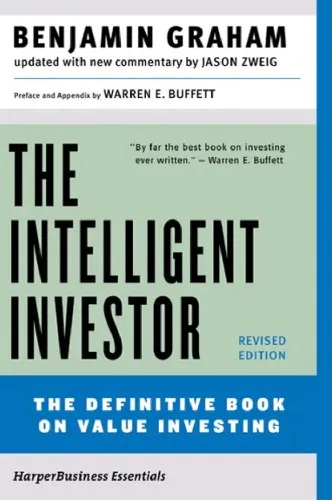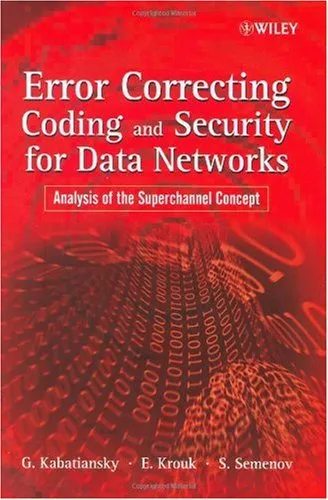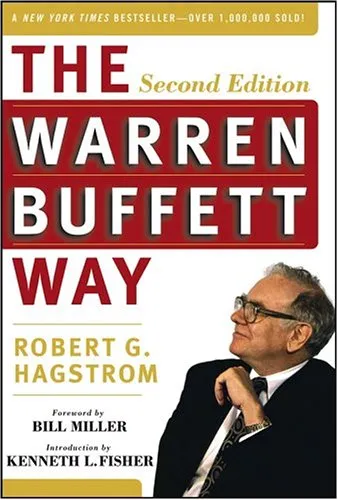An Analysis of David Graeber's Debt: The First 5,000 Years
4.0
Reviews from our users

You Can Ask your questions from this book's AI after Login
Each download or ask from book AI costs 2 points. To earn more free points, please visit the Points Guide Page and complete some valuable actions.Related Refrences:
Welcome to an insightful exploration of "An Analysis of David Graeber's Debt: The First 5,000 Years," a critical examination brought to you by Sulaiman Hakemy. This compelling analysis offers readers a deeper understanding of one of the most influential books on the history of economics, culture, and society. Infused with engaging interpretations and comprehensive breakdowns, this analysis clarifies Graeber’s intricate web of ideas, spotlighting the historical and social dynamics that have shaped human civilization.
Detailed Summary of the Book
"Debt: The First 5,000 Years" by David Graeber is an audacious study that transcends conventional economic discourse. Graeber embarks on a formidable journey through 5,000 years of human history, unraveling the intricate relationships between debt, morality, and social institutions. His work challenges long-standing economic myths and delves into the birth of credit systems, the origins of currency, and the oscillation between societies dominated by credit and those fixated on currency. This analysis distills Graeber’s core arguments, illustrating how the concept of debt profoundly influences human interactions and the structuring of civilizations.
Key Takeaways
- The Myth of Barter: Graeber demolishes the widely-held economic theory that barter preceded money, revealing a complex history of credit systems.
- Debt as Social Fabric: The book illustrates how debt has historically played a crucial role in gluing societies together and structuring hierarchies.
- Moral Implications: Graeber highlights the moral fluctuations surrounding debt, portraying it as a tool of oppression and liberation at different junctures in history.
- Historical Cycles: The analysis points to cyclical patterns in which societies oscillate between systems of credit and currency over the millennia.
Famous Quotes from the Book
"The moment someone gives you a loan, they have effectively sold you a portion of your future freedom." - David Graeber
"For thousands of years, the struggle between rich and poor has largely taken the form of conflicts between creditors and debtors." - David Graeber
Why This Book Matters
David Graeber’s "Debt: The First 5,000 Years" is not merely a history of economic transactions; it is a profound look into the social and moral implications of debt. It garners significance as it defies traditional economic assumptions and offers a rich ethnographic perspective that intertwines anthropological insights with economic critique. Graeber's work encourages readers to question the perceived inevitability of economic structures and sets the stage for envisioning alternative social orders. By understanding the depths of debt's historical impact, stakeholders, scholars, and casual readers alike are better equipped to engage in dialogues about economic justice and the future of financial systems.
Free Direct Download
You Can Download this book after Login
Accessing books through legal platforms and public libraries not only supports the rights of authors and publishers but also contributes to the sustainability of reading culture. Before downloading, please take a moment to consider these options.
Find this book on other platforms:
WorldCat helps you find books in libraries worldwide.
See ratings, reviews, and discussions on Goodreads.
Find and buy rare or used books on AbeBooks.
1362
بازدید4.0
امتیاز0
نظر98%
رضایتReviews:
4.0
Based on 0 users review
Questions & Answers
Ask questions about this book or help others by answering
No questions yet. Be the first to ask!





































